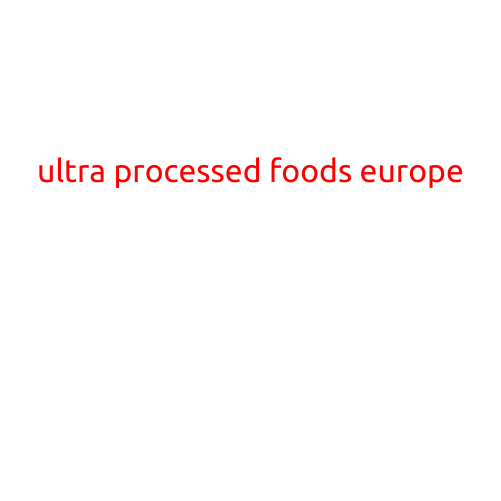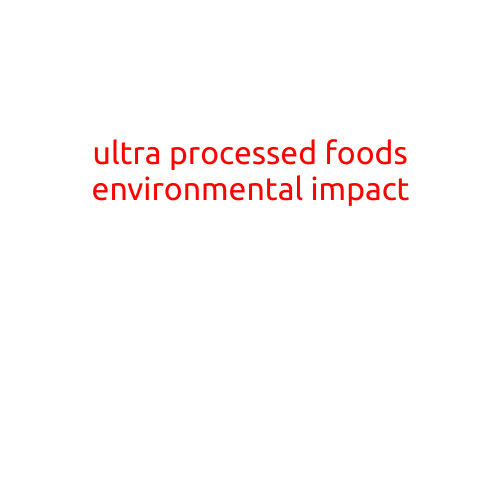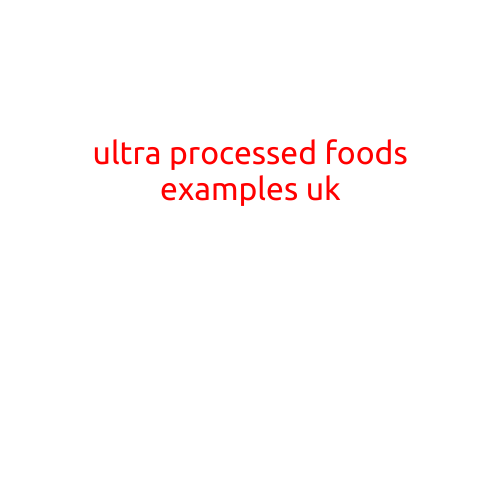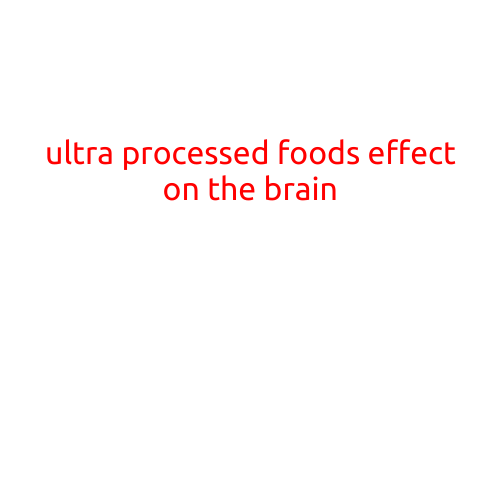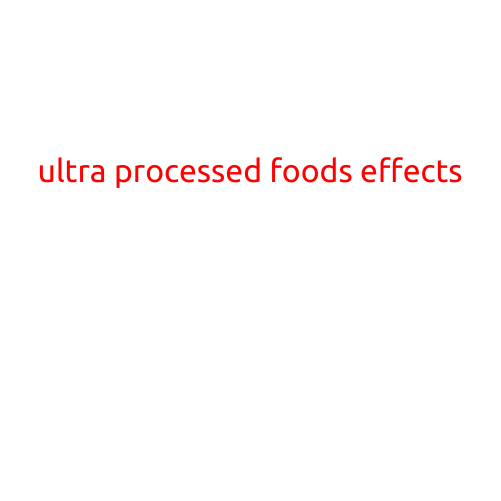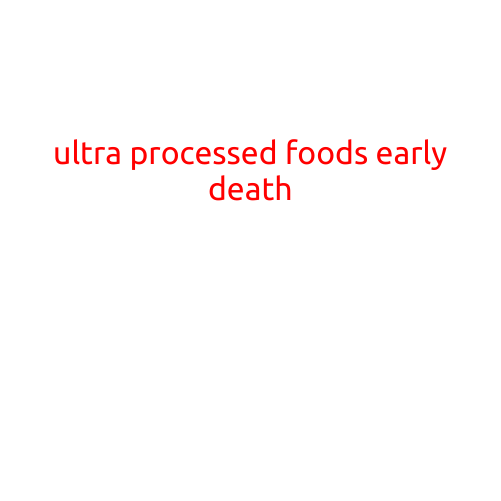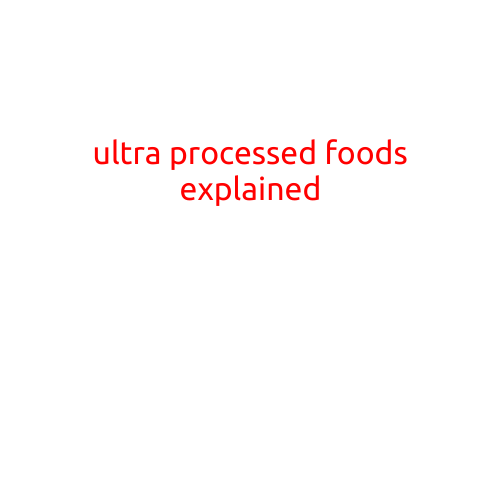
Ultra Processed Foods Explained: The Truth Behind the Rise of Highly Manipulated Foods
In recent years, the term “ultra-processed foods” has been gaining attention in the media and health community. But what exactly are these foods, and why should you care? In this article, we’ll delve into the world of ultra-processed foods, exploring their definition, characteristics, and impact on our health and diets.
What Are Ultra-Processed Foods?
Ultra-processed foods are a category of food products that have undergone significant processing and transformation from their natural state. These foods are typically made from a combination of ingredients, including meat, dairy, vegetables, fruits, and whole grains, but often contain added sugars, salt, and unhealthy fats.
To be considered ultra-processed, a food must meet a set of criteria established by Brazilian researchers, who first identified and named this category of foods. Specifically, ultra-processed foods:
- Are composed of a combination of ingredients
- Have undergone significant processing (e.g., extrusion, frying, or microwaving)
- Contain additives, such as preservatives, flavor enhancers, or coloring agents
- Are often highly palatable and appealing to the senses
- Are typically high in calories, fat, salt, and added sugars
Examples of ultra-processed foods include:
- Frozen meals (e.g., TV dinners, frozen pizza)
- Packaged snacks (e.g., chips, crackers, cookies)
- Ready-to-eat sandwiches and wraps
- Processed meats (e.g., hot dogs, sausages, bacon)
- Instant noodles and pasta
- Canned goods (e.g., soups, sauces, vegetables)
Characteristics of Ultra-Processed Foods
Ultra-processed foods have several characteristics that set them apart from whole, minimally processed foods. Some of the key characteristics include:
- High in energy density: Ultra-processed foods are often high in calories, carbohydrates, and fats, making them highly palatable and addictive.
- Low in essential nutrients: Whole foods, on the other hand, are rich in essential vitamins, minerals, and fiber. Ultra-processed foods, by contrast, often have a low nutrient content.
- High in additives: Ultra-processed foods often contain a range of additives, including preservatives, flavor enhancers, and coloring agents, which can be detrimental to our health.
- Convenient and appealing: Ultra-processed foods are often designed to be convenient and appealing, making it easy to overconsume them.
The Impact of Ultra-Processed Foods on Our Health
The rise of ultra-processed foods in our diets has been linked to a range of negative health outcomes, including:
- Weight gain and obesity: Ultra-processed foods are often high in calories and low in nutrients, making it difficult to maintain a healthy weight.
- Increased risk of chronic diseases: A diet heavy in ultra-processed foods has been linked to an increased risk of chronic diseases, including heart disease, type 2 diabetes, and certain types of cancer.
- Altered gut health: Ultra-processed foods can disrupt the balance of gut bacteria, leading to changes in our metabolism and overall health.
- Negative impact on mental health: A diet rich in ultra-processed foods has been linked to an increased risk of depression, anxiety, and other mental health disorders.
What Can You Do to Limit Your Intake of Ultra-Processed Foods?
Fortunately, there are several steps you can take to limit your intake of ultra-processed foods and prioritize whole, minimally processed foods in your diet:
- Read labels: Become a label reader! Check the ingredient list and nutrition facts panel to ensure that your food choices are made with whole, recognizable ingredients.
- Cook from scratch: Cooking meals from scratch allows you to control the ingredients and preparation methods, ensuring that you’re consuming whole, nutrient-dense foods.
- Choose whole foods: Prioritize whole, minimally processed foods, such as fruits, vegetables, whole grains, lean proteins, and healthy fats.
- Avoid convenience foods: Convenience foods, such as packaged snacks and ready-to-eat meals, are often ultra-processed and should be avoided.
Conclusion
Ultra-processed foods are a significant concern in modern diets, with potentially devastating consequences for our health and well-being. By understanding the definition, characteristics, and impact of ultra-processed foods, we can take steps to limit our intake and prioritize whole, minimally processed foods. Remember: the best diet is one that is rich in whole, nutrient-dense foods, and free from the artificial additives and processing that characterize ultra-processed foods.
